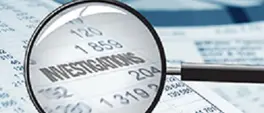How to plan your finances after a divorce (it's stressful AND expensive)
Paula Luckhoff
30 September 2025 | 20:14Personal financial adviser Warren Ingram shares valuable pointers on The Money Show.

Divorce, money, wedding rings and coins. Unsplash/Oscar Ivan Esquivel Arteaga
Warren Ingram, personal finance guru and director of Galileo Capital, joins Stephen Grootes on The Money Show.
Divorce is one of the biggest traumatic life events you could ever go through.
On top of the emotional distress, it can also be a very expensive exercise.
From his experience it feels as though a couple can get to the other side of a divorce as two individuals often with each of them retaining only a quarter of what they had before, says personal finance expert Warren Ingram.
"You don't just halve your wealth; your wealth goes down by another half. And the reality is that you're taking two households from one, and unfortunately some of those costs aren't just half - you don't just pay half the government's rates and taxes; it is always going to be more."
Warren Ingram, Director - Galileo Capital
If there are children involved, the divorcing parents will almost be providing two sets of everything as well if the custody is shared.
It is important to be realistic about your new position so that you start from a new foundation, Ingram emphasizes.
He shares three critical pointers to help you stay afloat.
1. Rebuilding your Budget From Scratch:
- Calculate your true household income. You're likely transitioning from dual income to single income, or adjusting to child or spousal maintenance payments.
- Track expenses for 2-3 months to understand your new spending patterns. Housing, childcare, and healthcare costs often shift dramatically post-divorce.
- Assess your assets and debts clearly. Review what you received in the settlement. Understand the tax implications of each.
2. Immediate Financial Priorities (first 30-60 days):
- Update all beneficiaries - review your retirement annuities, life insurance policies, bank accounts, and investment accounts. (Your ex-spouse remains the beneficiary by default.)
- Establish an emergency fund. Aim for 3-6 months of essential expenses. Start small if needed, but make sure you keep building they fund.
- Review and update your insurance. If you were on your spouse's plan, get medical aid. Also, review your car, home, disability, and life assurance needs.
- Check your credit report. Look for accounts you didn't know about; errors, or joint debts that should have been closed. Dispute any inaccuracies immediately.
- Try to avoid big financial purchases - rather delay them for a year or two until you are established in your new life.
3. Long-Term Financial Planning:
- Revisit your retirement planning. If you received retirement funds in the divorce, understand what you are going to do with them.
- Recalculate how much you need to save given your new financial position.
- Revise your will, and if you have children, ensure guardianship arrangements reflect your wishes.
- Consider meeting with a financial advisor to help you form a new plan for your financial future.
Keep in mind that financial recovery after divorce usually takes time and be patient with yourself.
You will feel fully stabilised after two to five years, Ingram says.
Scroll up to the audio player to listen to Ingram's detailed advice
Get the whole picture 💡
Take a look at the topic timeline for all related articles.

















